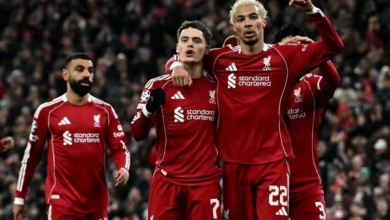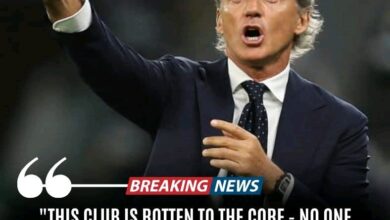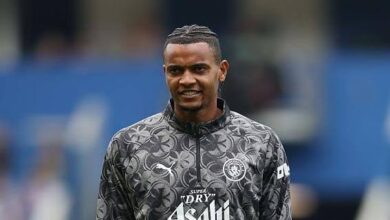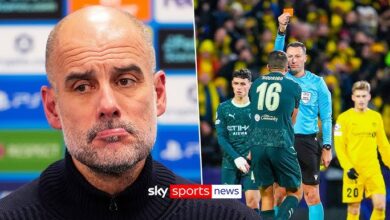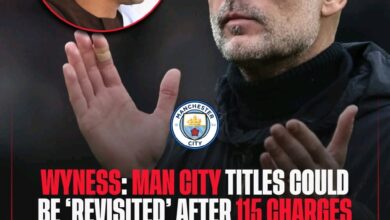Managing Arsenal – Viktor Gyokeres transfer completed as Martin Zubimendi signs and six sold

Arsenal Football Club stands at a pivotal crossroads in their modern history. After four seasons of meticulous rebuilding under manager Mikel Arteta and former sporting director Edu Gaspar, the North London club has transformed from a team struggling to secure European qualification into genuine title contenders. However, the next phase of their evolution presents perhaps an even greater challenge: converting consistent competitiveness into championship glory.
The summer transfer window represents more than just an opportunity for squad enhancement; it embodies Arsenal’s ambition to complete their metamorphosis from pretenders to champions. The magnitude of this transformation cannot be understated. When Arteta arrived in December 2019, Arsenal languished in mid-table mediocrity, their identity fractured and their fanbase disillusioned. The subsequent years have witnessed a remarkable cultural renaissance, with the Emirates Stadium once again becoming a fortress and the team displaying the tactical sophistication and mental fortitude that defines elite football clubs.
Yet reaching the summit of English football demands a different approach to maintaining competitiveness. The transition from being “nearly there” to claiming the Premier League crown requires surgical precision in the transfer market, with each acquisition potentially determining whether Arsenal can bridge the gap to their rivals or remain perpetual challengers.
Arsenal’s appointment of Andrea Berta as their new sporting director signals a strategic shift in their transfer philosophy. Berta’s previous tenure at Atletico Madrid, where he oversaw numerous successful player acquisitions and sales, suggests Arsenal are prepared to operate at the highest level of the transfer market. His expertise in identifying elite talent and navigating complex negotiations represents a departure from their previous approach, which relied heavily on developing young prospects and finding value in overlooked players.
This philosophical evolution reflects Arsenal’s recognition that competing with the Premier League’s financial powerhouses requires access to established world-class talent. While their previous strategy of nurturing potential has yielded considerable success, the final step toward championship contention often demands immediate impact signings who can elevate the team’s ceiling.
Berta’s appointment also indicates Arsenal’s commitment to competing in multiple markets simultaneously. His experience in European football networks and understanding of international transfer dynamics will prove invaluable as Arsenal seek to strengthen their squad while managing the increased attention that comes with success.
The landscape of Premier League competition has been significantly altered by Liverpool’s proactive approach to the transfer window. Under Arne Slot’s guidance, the Merseyside club has moved decisively to secure their immediate future by extending contracts for crucial players Virgil van Dijk and Mohamed Salah while simultaneously pursuing high-profile additions.
Liverpool’s reported interest in Bayer Leverkusen’s Jeremy Frimpong and Florian Wirtz, combined with their pursuit of Bournemouth’s Milos Kerkez, demonstrates their intent to strengthen from positions of strength rather than merely addressing weaknesses. This aggressive strategy places immediate pressure on Arsenal to respond with equal ambition or risk falling further behind in the title race.
The timing of Liverpool’s moves proves particularly significant. By securing their key players early and identifying primary targets, they have positioned themselves advantageously in negotiations while forcing competitors to react rather than dictate market conditions. For Arsenal, this means their transfer strategy must account for potentially inflated prices and increased competition for elite talent.
Liverpool’s approach also highlights the narrow margins that separate title contenders from champions. Their willingness to invest heavily despite already possessing a strong squad demonstrates the relentless pursuit of marginal gains that characterizes successful football clubs in the modern era.
Arsenal’s pursuit of Sporting CP striker Viktor Gyokeres represents the clearest indication of their transfer priorities. The Swedish international has emerged as one of European football’s most prolific goalscorers, combining physical presence with clinical finishing and intelligent movement that would perfectly complement Arsenal’s attacking philosophy.
Gyokeres’ potential arrival would address Arsenal’s most glaring deficiency: the lack of a natural goalscorer capable of converting the numerous chances created by their sophisticated attacking system. His ability to operate as both a focal point and a mobile threat would provide Arteta with tactical flexibility while ensuring Arsenal maximize their creative output.
The striker’s experience in high-pressure situations, demonstrated through his performances in European competition and for the Swedish national team, suggests he possesses the mental attributes necessary to thrive at Arsenal. His age profile also aligns with the club’s strategic planning, offering immediate impact while providing long-term value.
However, securing Gyokeres’ signature will require Arsenal to compete with Europe’s elite clubs, all of whom recognize his potential impact. The transfer fee and wage demands associated with such a high-profile signing will test Arsenal’s financial commitment to their championship ambitions.
The reported interest in Real Sociedad’s Martin Zubimendi reflects Arsenal’s understanding of modern midfield requirements. The Spanish international’s ability to control tempo, distribute possession effectively, and provide defensive stability would complement Arsenal’s existing midfield talents while addressing their occasional vulnerability to high-pressing opponents.
Zubimendi’s technical proficiency and tactical intelligence align perfectly with Arteta’s preference for possession-based football. His experience in La Liga and international football suggests he could adapt quickly to the Premier League’s demands while providing the consistency that championship-winning teams require. The midfielder’s versatility represents additional value, as his ability to operate in multiple positions provides tactical flexibility during matches and squad rotation throughout a demanding season. His defensive awareness would also allow Arsenal’s more attacking-minded midfielders greater freedom to influence games in the final third.
Arsenal’s transfer strategy must balance acquisitions with strategic departures to maintain squad harmony and comply with financial regulations. The identification of six players for potential sale suggests a comprehensive evaluation of squad requirements and market opportunities.
These departures will likely focus on players whose development has plateaued or whose skill sets no longer align with Arteta’s tactical evolution. The proceeds from these sales will contribute to Arsenal’s transfer budget while creating squad spaces for new arrivals. The challenge lies in maximizing transfer fees while ensuring departing players find suitable destinations. Arsenal’s reputation for developing talent should facilitate these transactions, with several clubs likely interested in players who have benefited from the club’s coaching expertise.
Arsenal’s transfer strategy must operate within the constraints of Financial Fair Play regulations while maximizing competitive advantage. The club’s improved commercial performance and consistent European qualification have strengthened their financial position, but major signings still require careful budget management.
The strategy of combining high-profile acquisitions with strategic departures allows Arsenal to strengthen their starting eleven while maintaining squad depth. This approach reflects lessons learned from previous transfer windows where inadequate squad planning resulted in injury crises and performance fluctuations.
Arsenal’s focus on players who can contribute immediately while offering long-term value demonstrates sophisticated recruitment planning. The emphasis on character and tactical fit, established during their rebuilding phase, remains crucial even as they pursue more expensive targets.
Manchester City’s ongoing rebuild presents both opportunity and uncertainty for Arsenal’s planning. The potential departure of key players and integration of new signings may create temporary vulnerabilities, but City’s resources and coaching expertise suggest any weakness will be short-lived. Chelsea’s continued inconsistency and tactical uncertainty provide Arsenal with confidence that they can maintain their superior league position. However, Chelsea’s financial resources mean they remain capable of disruptive transfer activity that could reshape competitive dynamics.
Tottenham’s perpetual search for consistency makes them unpredictable competitors, while Newcastle’s financial constraints limit their immediate threat. Arsenal’s strategic planning must account for these variables while focusing primarily on matching Liverpool’s ambition. Any new signings must integrate seamlessly into Arteta’s established tactical framework while potentially offering evolution opportunities. The manager’s ability to develop player relationships and tactical understanding will be crucial in maximizing new arrivals’ impact.
Arsenal’s success has been built on tactical consistency and player understanding of their roles within the system. New signings must demonstrate both individual quality and collective intelligence to maintain this foundation while adding new dimensions to the team’s play. The challenge of maintaining tactical coherence while incorporating multiple new players will test Arteta’s coaching ability and the squad’s adaptability. Previous successful integrations suggest Arsenal possess the necessary infrastructure and culture to manage this transition effectively.
Arsenal’s ultimate goal extends beyond mere competitiveness to achieving championship success. This ambition requires not only individual player upgrades but also psychological and cultural evolution to handle the pressure and expectations that accompany title challenges.
The experience gained from recent near-misses provides valuable lessons about maintaining consistency throughout a long season. New signings must understand and embrace these standards while contributing their own championship mentality and experience.
Arsenal’s youth development programs continue providing long-term foundation elements, but immediate championship contention requires proven quality and experience. The balance between these approaches will define their transfer strategy’s success
Arsenal’s approaching transfer window represents a defining moment in their modern evolution. The decisions made during these crucial months will determine whether they can complete their transformation from rebuilders to champions or remain competitive but ultimately unsuccessful.
The combination of strategic appointments, targeted signings, and careful squad management suggests Arsenal understand the magnitude of their opportunity. However, execution will ultimately determine success, with each transfer decision potentially influencing their championship aspirations for years to come.
The pressure to match Liverpool’s ambition while maintaining their own identity and financial sustainability creates complex challenges that will test every aspect of Arsenal’s organizational capability. Success will require not only smart signings but also perfect integration and tactical evolution.
Arsenal supporters can approach this summer with justified optimism, knowing their club possesses the infrastructure, leadership, and ambition necessary for championship contention. The final piece of their puzzle awaits completion through shrewd transfer activity and unwavering commitment to their ultimate goal: returning the Premier League trophy to North London.






